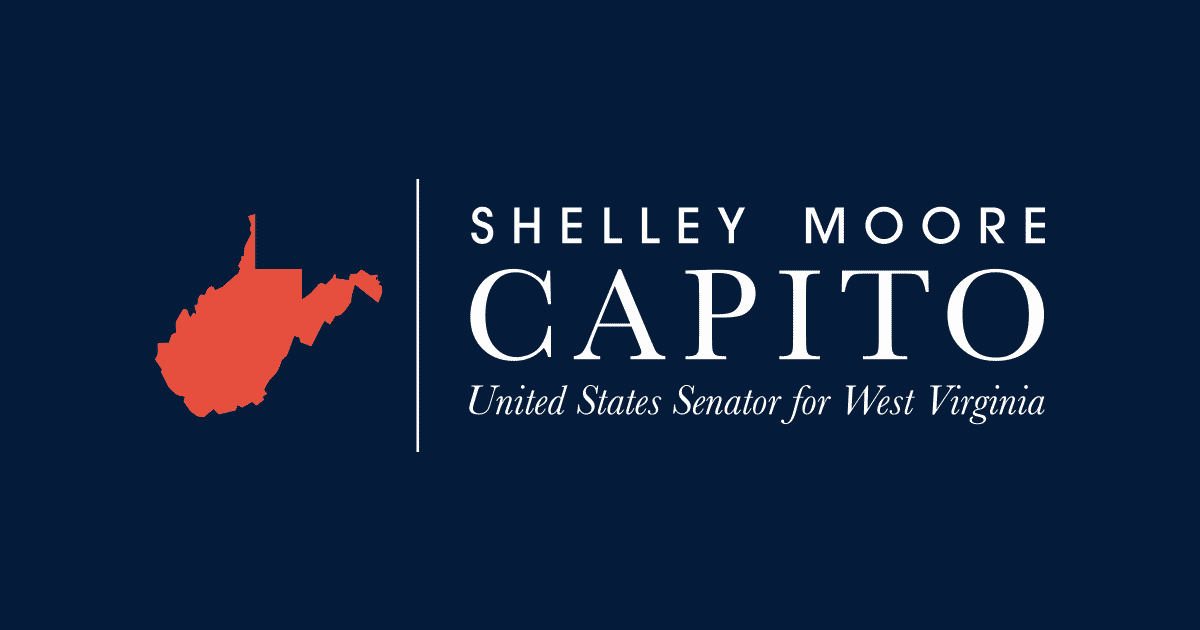Source: United States Senator for West Virginia Shelley Moore Capito
Click here or the image above to watch Ranking Member Capito’s opening remarks.
BECKLEY, W.Va. – Today, the Senate Environment and Public Works (EPW) Committee held the first of a two-part hearing series focusing on the unique challenges that small, disadvantaged, and rural communities face in accessing and maintaining drinking water and wastewater services.
Below is the committee hearing opening statement of Ranking Member Shelley Moore Capito (R-W.Va.), as prepared for delivery:
“Thank you, Chairman Carper.
“It’s a real honor for me to be here with my chairman, Senator Tom Carper of Delaware, and also here with my fellow senator from West Virginia, Senator Joe Manchin.
“I think the fact that Senator Manchin joined us as a partner here today shows not just how well Senator Manchin and I work together representing West Virginia, but also how our two committees—Senator Manchin is the chairman of the Energy and Natural Resources Committee—Senator Carper and I are over on EPW. There’s a lot of crossover between different areas of interest, so I thank you for coming today.
“Welcome home to Senator Carper. I think you can tell the good solid upbringing that Raleigh County brought to Senator Carper still holds dear to his heart and also the values that he embraces, I think, probably his entire life, were rooted here his entire life.
“I also want to thank Judge Poling for letting us use his court room today. I also want to thank all of the people that work for him, as well as the sheriffs and the deputies for providing securities we need and have asked for. I want to thank my staff, Senator Carper’s staff, and I want to thank the press for covering this. This is important for our state, and we have some good witnesses here today.
“I’m not going to go back through a lot of what Senator Carper already said about the specifics of the bill that we passed, but I do have an opening statement. And I do want to again talk about where my area of interest has been is when you’re looking at small and disadvantaged rural communities—when you’re trying to look at funding mechanisms and ways to deliver what we all take for granted in some sources, but some people wake up in the morning and can’t, and that’s safe and clean drinking water.
“We did pass that legislation off the Senate floor with a resounding bipartisan vote of 89 to 2.
“One of the questions I get all of the time is, ‘Do you all ever do anything together?’ The sad note about that is that we do a lot together, but it doesn’t get the publicity—we don’t talk a lot about the good things we do.
“In these areas that we are looking at—roads, bridges, water, broadband—we have great consensus.
“So, we’re waiting for the House to pass the bipartisan infrastructure package, of which this water bill is part of this, but also a lot of other really good things that will be great for not just West Virginia, but also for Delaware.
“One of the reasons Senator Carper and I get along so well is because the fact that we are from small states. He knows that we know each other.
“There are many critical water infrastructure needs the Environment and Public Works Committee has heard about, and we need to address these right now.
“I look forward to hearing the perspectives from our witnesses, and I thank them for coming.
“Every day Americans rely on the infrastructure that supports our wastewater systems.
“These are the systems that this nation prides itself on: providing access to clean water at the turn of a handle.
“We are facing critical challenges in the resilience of these systems, with many of our small and rural communities being disproportionately affected by the wide array of water infrastructure challenges.
“Small and rural communities are particularly strained and need additional support to ensure protection and availability of this vital resource.
“Many systems in this great state of West Virginia are very old, and some of our systems don’t even know where their piping is because the infrastructure predate mapping records.
“Importantly though, these challenges are not unique to one state.
“I am committed to continue addressing the challenges facing this nation’s water infrastructure expeditiously, in a bipartisan fashion, and with a holistic approach.
“I believe ensuring reliable, modern water infrastructure is a fundamental responsibility of government.
“That’s why the Drinking Water and Wastewater Infrastructure Act provides some of this.
“The programs and funding in DWWIA provide solutions ranging from ensuring that systems have pipes that don’t leak, to ensuring that there is a sustainable water workforce in place to maintain and operate continued and new infrastructure investments, to ensuring that there is tailored funding for the resilience and sustainability of small and rural systems, like many of those in West Virginia.
“We provided a robust, bipartisan, piece of legislation that created a toolbox of solutions.
“As I said, the Drinking Water and Wastewater Infrastructure Act was included entirely and verbatim in the bipartisan infrastructure bill which has been awaiting a vote in the House for over two months.
“I’m hopeful our colleagues across the aisle will address this bipartisan legislation very soon.
“So again, I am very pleased and honored that you are here.”
# # #
